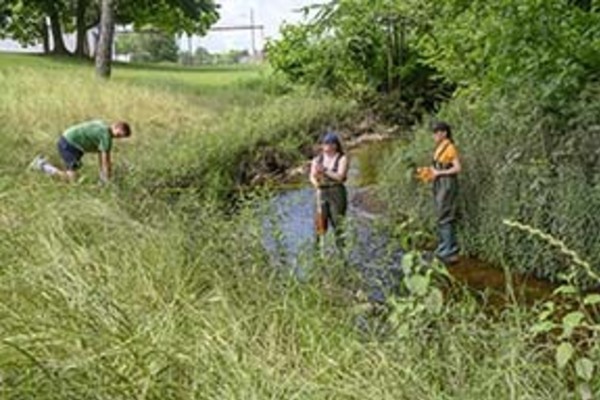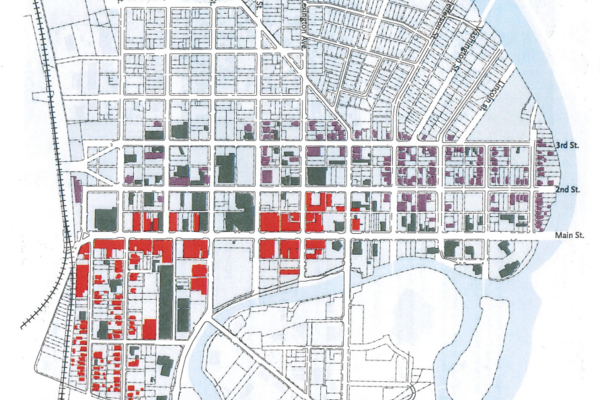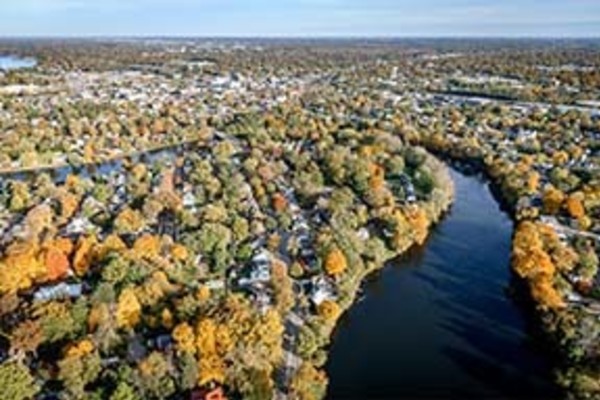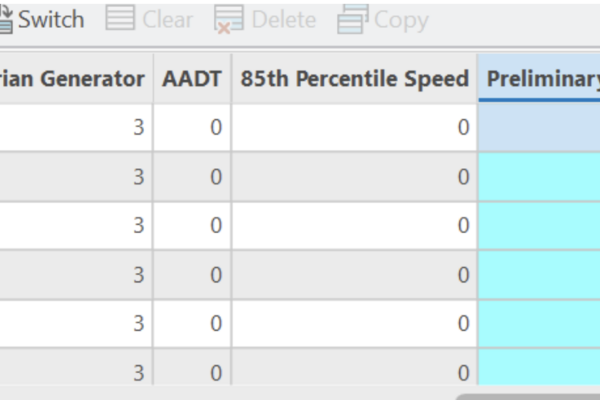Data-Informed Decision Support for Community Development
In the era of smart cities, information is critical to progress on the substantive areas aforementioned (housing, sustainability and resilience, health and wellness). Nonetheless, the development of relevant, quality, actionable information for decision-support continues to be a challenge in most communities. Combined with the perennial challenge of data and information utilization by a wide range of stakeholders, this domain represents both an area of programming and of research development with the potential to accelerate progress in the other domains.
The Center for Civic Innovation recognizes these challenges and supports programming and research that facilitates information development and understanding the structures, capacities, and processes for its effective utilization.
Related Projects
-

Big Data
A complex hydrology occurs between Bowman Creek and leaking sewer/water pipes that run near to the stream, including leakage both into the pipe and out of the pipe depending on weather and soil conditions. The City of South Bend has invested in lining the pipes to reduce leakage, and CCI is collaborating with them to understand the effectiveness of this tactic by analyzing data from hundreds of sensors prior to and after the intervention.
-

dataMichiana
Data are developed with community partners and used for planning and action by stakeholders. dataMichiana will be the local platform with National Neighborhood Indicators Partnership, managing and providing data in the Michiana region served by CCI to create useful data layers for South Bend with an equity lens with applications to education, housing, workforce development, and/or food access.
-

Historical Inventory
The City of Elkhart (CoEI) and the Elkhart Education Foundation (EEF) partnered together to incorporate a project that documents the rich historical and cultural heritage of the city. Interns received mentorship from the City of Elkhart’s Development Services to establish a set of guidelines for the classification of historic assets. Throughout the summer, interns worked in Central Elkhart to identify historical buildings to integrate them onto a layer in ArcGIS, a geospatial software used to analyze geographic data.
-

Narrative Storyboards for dataMichiana
CCI partnered with Notre Dame faculty and community members to construct data narrative storyboards through ArcGis that focused on areas including housing instability, internet access, and preventative health measures. The team also developed a data viewing tool that featured multiple map layers with data relevant to the Michiana region including student housing mobility, graduation rates, and suspensions in South Bend.
-

Recycling Analysis
Recycling is a service paid for by the City of Elkhart, but few people take full advantage of the service. CCI is partnering to understand and improve the recycling and waste dynamics in the City of Elkhart by analyzing different neighborhoods based on geography and socioeconomic factors. An online tool is being developed that increases public knowledge and participation in proper recycling and waste management practices.
-

River Marker
In early 2020 a low-head dam was removed from the Elkhart River - CCI is partnering with the City of Elkhart to conduct historical background research on the low-head dam and the benefits of its removal. This research will be useful in the design and installation of a historical marker near the former site of the dam.
-

SmartWater
This project aims to address the crucial issue of water loss and associated costs in municipal water supply systems. By leveraging innovative technologies, including real-time sensing and network analysis, our team, along with HydroDigital seeks to develop a "smart" water management solution. The team developed a prototype system that utilizes sound analysis and artificial intelligence to detect and classify leaks in the water distribution system. This project has the potential to significantly improve water conservation, reduce financial losses, and enhance the city's reputation as a leader in water management innovation.
-

Traffic Calming WebApp
The City of South Bend has been compiling requests for Traffic Calming since 2015 to compare locations that have the greatest need. This intern team created a WebApp based on ArcGIS that removes a large portion of the manual labor needed previously to review requests. Requests can now be processed at an accelerated rate leading to increased implementation of Traffic Calming measures per year by the City.
Partner Organizations
- City of South Bend
- City of Elkhart
- Tolson Center for Excellence
Related Faculty
-

Dr. Jay Brockman
-

Dr. Nitesh Chawla
-

Dr. Ronald A. Metoyer
-

Dr. Matthew Sisk
-

Dr. Danielle Wood